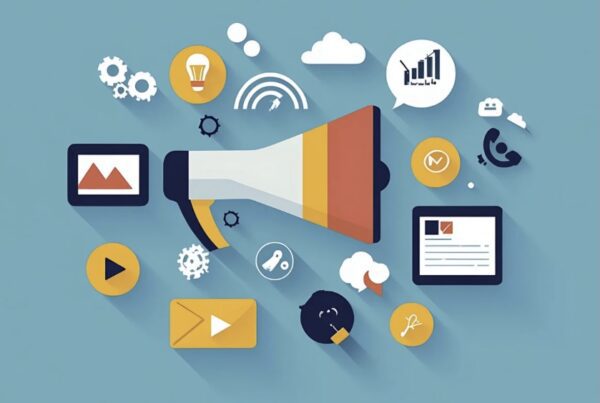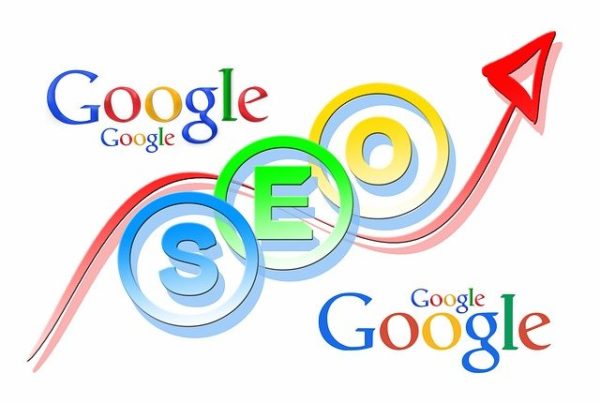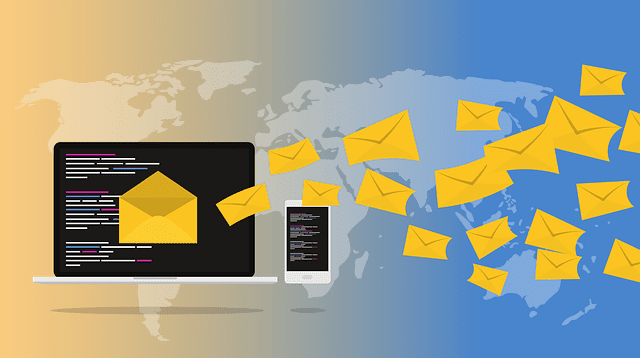
What is Email Marketing?
Definition
- Email marketing is a form of digital marketing that involves sending targeted emails to a specific audience.
- It’s a way to turn prospects into buyers and one-off customers into loyal brand advocates.
- This can include sending weekly newsletters, promotional emails, and special customer deals.
Importance of emails in a marketing strategy
-
Email marketing is an important part of a digital marketing strategy.
-
It allows businesses to create relationships with their audience and build customer loyalty.
-
Email marketing can help businesses drive impressive results, even without a large budget.
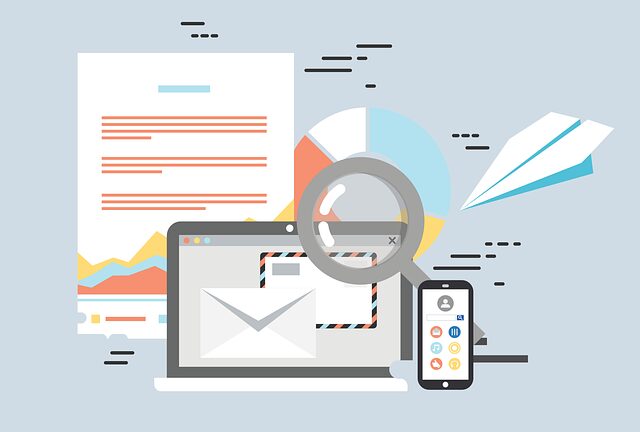
5 Top Benefits of Email Campaigns
1. Cost-Effective Marketing Solution
“Email Marketing is a Budget-Friendly Choice”
- Email marketing is more affordable than traditional marketing methods because it eliminates the costs associated with print, postage, and ad space, allowing businesses to reach a large audience with minimal expenses to improve traffic to your website.
- Studies show that email marketing delivers an average ROI of $42 for every $1 spent, making it one of the most cost-effective marketing strategies available.
- Email marketing software often offers scalable pricing plans, allowing businesses to save on marketing costs by only paying for the features and subscriber lists they need.
2. Direct Communication with Target Audience
“Email Campaigns Enable Direct Access to Your Customers”
- Allows businesses to send personalized messages directly to subscribers’ inboxes, enhancing customer experience by tailoring content to individual preferences and behaviors.
- This direct line of communication fosters a stronger relationship with customers and email subscribers by building trust, increasing engagement, and making them feel valued through consistent, relevant, and personalized interactions.
- Targeting specific customer segments in email marketing ensures that content is relevant and tailored to the unique needs and interests of each group, leading to higher engagement and conversion rates.
3. Measurable Results and Analytics
“Tracking the Success of Your Email Campaigns”
- Email marketing platforms provide detailed analytics and reporting, which help businesses evaluate the performance of their campaigns.
- By tracking metrics such as open rates, click-through rates, and conversions, marketers can assess how well their emails are engaging recipients and prompting desired actions.
- Data & insights allow for adjustments and optimizations in future campaigns, enhancing effectiveness and driving better results.
4. Increased Customer Engagement
“Boosting Engagement Through Targeted Email Campaigns”
- Increased customer engagement is achieved through targeted email campaigns that deliver relevant and personalized content to recipients.
- By tailoring messages to specific segments based on their interests and behaviors, businesses can capture attention and encourage interaction.
- This personalized approach fosters stronger connections, driving higher open rates, click-through rates, and overall engagement with the brand.
5. High Conversion Rates
“Turning Leads into Sales with Email Campaigns”
- Targeted email campaigns can lead to higher conversion rates by engaging both current and potential customers.
- Email marketing can be effective in nurturing leads through the sales funnel.
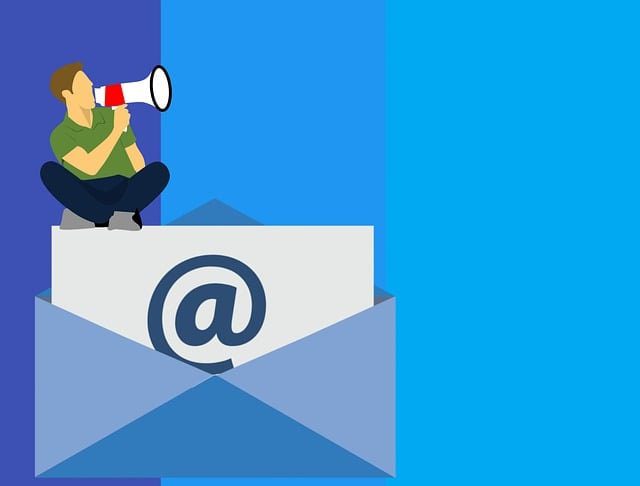
Types of Email Campaigns
Promotional Emails
-
Promotional emails are emails that directly sell a product or service.
-
They can include coupons, offers, or requests for donations.
-
Promotional emails are a great way to drive sales and increase revenue.
Educational Emails
-
Educational emails provide information without directly selling a product.
-
They can include articles, tutorials, or tips.
-
Educational emails are a great way to build trust and establish a business as an authority in their industry.
Newsletters
-
Newsletters are regular updates about a business or industry.
-
They can include personal updates, industry news, and upcoming events.
-
Newsletters are a great way to keep customers informed and build customer loyalty.
Drip Campaigns
-
Drip campaigns are pre-scheduled emails sent to customers after completing a specific action.
-
They can include welcome series, abandoned cart emails, and promotional emails.
-
Drip campaigns are a great way to automate email marketing efforts and save time.
Engagement Emails
-
Engagement emails are often overlooked, but they are important for building relationships with customers.
-
They can include surveys, requests for testimonials, and check-ins.
-
Engagement emails are a great way to build customer loyalty and increase customer retention.
Strategies
Developing a successful email marketing strategy
The best email marketing strategy for a business will depend on its goals, audience, and overall marketing strategy. It’s important to consider who the target audience is and what they want. A successful email marketing strategy should include a clear plan for creating and sending emails. Additionally, while social media marketing can be effective, it has disadvantages such as the lack of ownership over follower lists and the impact of platform changes on engagement and audience reach. In contrast, email marketing offers the advantage of retaining access to a subscriber list, helping businesses maintain contact and generate leads without being affected by the fluctuating nature of social media platforms.
Creating a welcome series and onboarding process
-
A welcome series is a good way to get customers acquainted with a brand and what it offers.
-
It can include a single touch welcome message or a variant of that message.
-
A welcome series is a great way to build customer loyalty and increase customer retention.
Setting clear goals and objectives
-
It’s important to set clear goals and objectives for your campaign.
-
This can include increasing website traffic, driving sales, or building customer loyalty.
-
Setting clear goals and objectives will help businesses measure the success of their email marketing efforts.
Email Campaign Best Practices
Keeping your marketing plan consistent and consider email cadence
-
Consistency is important when it comes to building brand awareness and trust through email marketing campaigns.
-
It’s important to deliver on what is promised and to keep marketing plans consistent.
-
Email cadence is also important, as it can help businesses avoid overwhelming their subscribers.
Diversifying the types of emails you create and send
-
It’s important to have a balance of different types of emails, including promotional, educational, and general newsletters.
-
This can help businesses get to know their audience better and tailor future messages.
-
Diversifying email types can also help businesses avoid overwhelming their subscribers.
Creating a free but compelling opt-in and tracking analytics
-
The best way to incentivize people to join an email list is by creating a free opt-in.
-
The type of opt-in created depends on the customers and their needs.
-
Tracking analytics is also important, as it can help businesses determine what resonates with their audience.
Creating a free but compelling opt-in is one of the most effective ways to grow an email list. A well-designed opt-in should provide immediate value to potential subscribers, encouraging them to share their contact information in exchange for something beneficial. The key is to understand the target audience and their pain points, then offer a solution in the form of a freebie, such as an exclusive eBook, checklist, webinar, discount, or access to premium content. The more relevant and enticing the opt-in, the higher the chances of conversions.
The type of opt-in created should align with the specific needs and preferences of the audience. For instance, if the business caters to professionals looking for industry insights, a free whitepaper or in-depth case study may be the best choice. On the other hand, an e-commerce store might find success offering a discount code or a free shipping incentive. Conducting audience research, such as surveys or analyzing customer behavior, can help determine what type of opt-in will be most appealing and valuable.
Tracking analytics is just as crucial as creating the opt-in itself. Businesses should monitor key metrics such as conversion rates, open rates, and click-through rates to assess the effectiveness of their opt-in strategy. By leveraging tools like Google Analytics, email marketing platforms, and heatmaps, companies can identify which opt-ins perform best and make data-driven adjustments. If an opt-in isn’t converting well, A/B testing different headlines, designs, or offers can provide insights into what resonates most with the audience. Ultimately, tracking analytics ensures that businesses optimize their opt-in strategies for maximum engagement and list growth.
Creating a Successful Email Marketing Campaign
How to create a successful campaign
-
A successful email campaign should include a clear plan for creating and sending emails.
-
It’s important to consider who the target audience is and what they want.
-
A successful email marketing campaign should also include a clear call-to-action and a way to track analytics.
-
Combine email marketing with social media marketing for that 1-2 punch.
Tips for promoting new products or services
-
Email marketing is a great way to promote new products or services.
-
Businesses can use email marketing to grab subscribers’ attention with enticing subject lines.
-
Email marketing allows businesses to automate messages and save time.
How to automate messages and build a valuable subscriber base
-
Email marketing automation makes interacting with customers and prospects easy and cost-effective.
-
It can help businesses save time and money by automating repetitive tasks.
-
Email marketing can help businesses build a valuable subscriber base and increase customer loyalty.
Email Marketing Software and Tools
Choosing the right email marketing provider for your needs
-
The first step is choosing the right email marketing service provider.
-
Consider the following factors when evaluating service providers: ease of use, features, and pricing.
-
Sign up for a free trial to test the software and ensure it’s the best fit for your needs.
Features to look for in an email marketing software
-
Look for features such as automation, segmentation, and analytics.
-
Consider the ease of use and the level of customer support.
-
Make sure the software is scalable and can grow with your business.
Popular email marketing software includes:
- Mailchimp
- Constant Contact
- Sendinblue
- HubSpot Email Marketing
- GetResponse
- AWeber
- ActiveCampaign
- Campaign Monitor
- Drip
- MailerLite
- Moosend
- ConvertKit
Measuring Email Marketing Success
How to track and measure the performance of your email campaigns
-
Most email marketing platforms offer built-in analytics that provide insight on results.
-
You’ll see information like how often your emails were opened and by whom, who clicked links in the email, and who unsubscribed.
-
Use analytics to improve your email marketing strategy and increase customer loyalty.
Using analytics to improve your email marketing strategy
-
Analytics can help businesses determine what resonates with their audience.
-
Use analytics to track open rates, click-through rates, and conversion rates.
-
Use analytics to improve email marketing efforts and increase customer loyalty.
Email Marketing for Business Growth
How email marketing can create stronger customer relationships
-
Email marketing allows businesses to send customers helpful and relevant content.
-
It can help businesses demonstrate value to their audience and show them how they can take the next step.
-
Email marketing can help businesses build credibility with their audience and increase customer loyalty.
Email Marketing and Personalization
How to use email marketing to create personalized content and offers
-
Email marketing allows businesses to create personalized content and offers.
-
Use segmentation to improve email marketing effectiveness.
-
Use analytics to determine what resonates with your audience and create personalized content.
How to use segmentation to improve effectiveness
-
Segmentation is the process of dividing an email list into smaller groups based on demographics, behavior, and preferences.
-
Use segmentation to create targeted campaigns and improve email marketing effectiveness.
-
Use segmentation to increase customer loyalty and retention.
Email Marketing Benefits: Campaigns and Automation
How to use automation to improve email marketing effectiveness
-
Automation can help businesses improve email marketing effectiveness by automating repetitive tasks.
-
Use automation to create targeted campaigns and improve email marketing effectiveness.
-
Use automation to increase customer loyalty and retention.
Email marketing is one of the most powerful a cornerstone of a good digital marketing strategy. We hope this blog post points you on the right path. Contact us if you have any questions or if you are ready to begin. We can audit your existing marketing strategy or help you create a marketing strategy, email campaign, website presence, etc.


